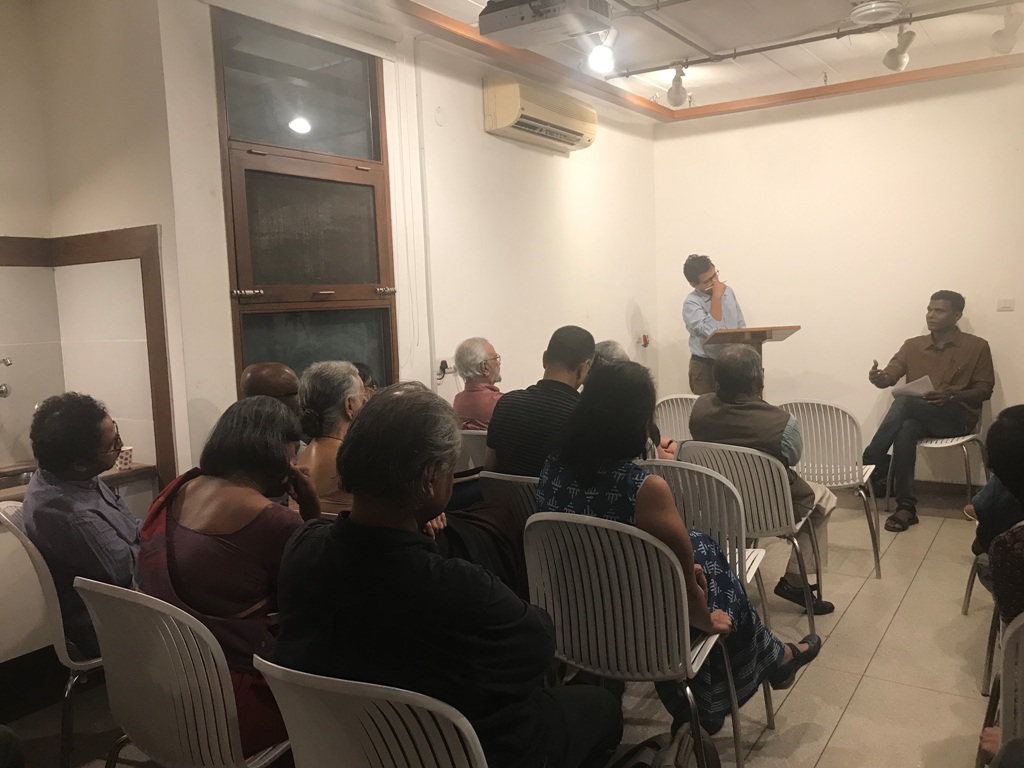By Santhosh S.
Moderator: Milind Wakankar
9 October 2019 | New Delhi
This talk deals with the potentials of a politics that leans towards the possibilities of minoritarian becoming, through a critical analysis of ‘Dalit’ as a political formation in contemporary India. Drawing on elements from the works of Gilles Deleuze, Jean-Luc Nancy, and Jacques Ranciere, this talk attempts to propose new understandings regarding community, collectivity, and the commons, especially in the context of the caste system and its multiple operationalities. It explores the emergent political-scape by analysing some pertinent events and questions from recent histories of resistance and struggles, such as the ‘suicide’ of Dalit scholar and activist Rohith Vemula, the protests of community members belonging to the category of ‘untouchables’ in Una, Gujarat, and the ways in which caste economies determine the spatial dynamics of cityscapes in contemporary India. Arguing against the given understandings regarding Dalit politics, the talk explores the possibilities of anti-essentialist community formations which defy the dominant logics of categorisation. It departs from what is broadly projected as the left-liberal frameworks and their notions of expansive politics, arguing instead for a politics that is immersed in intensity. At a conceptual level, the talk proposes that such minoritarian formations act as fulcrums within which multiple democratic impulses intersect and emerge as a dissensual paradigm of the language of politics.
Dr. Santhosh Sadanandan teaches at the School of Culture and Creative Expressions, Ambedkar University Delhi. His work is in the field of critical historiography of Indian art and cultural practices, in particular, exploring the role of categories such as caste in the structuration of the field of artistic production.



